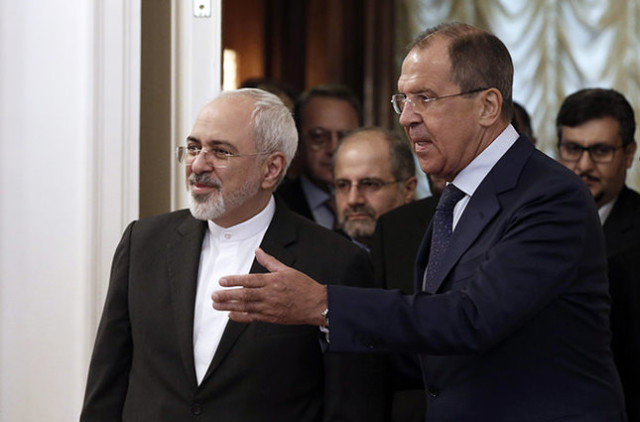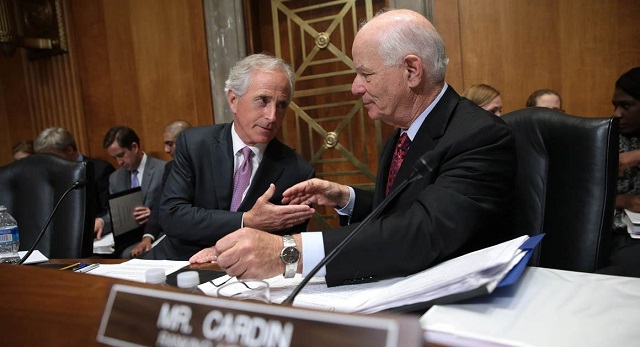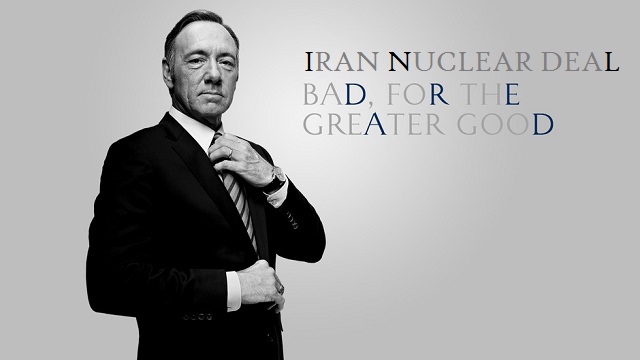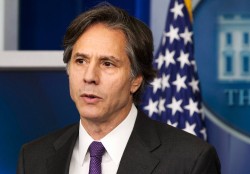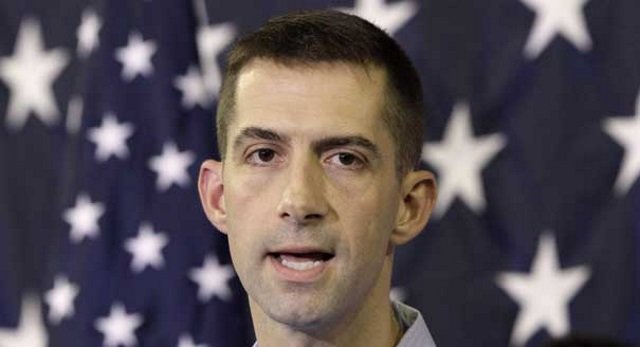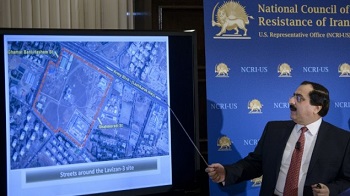President Obama’s Latest Treachery on Iran Nuclear Deal
It has been a spectacular week for Russia and Iran. Monday, Foreign Ministers Lavrov and Russia and Mohammed Javad Zarif meet in Moscow given the success of the JCPOA negotiations and UN Security Council endorsement to discuss listing weapons sanctions and ways to shore up the flagging fortunes of ally Bashar Assad in bloody Syria, the junior partner in the so-called Axis of Resistance. That was followed by the announcement of an agreement to deliver on an expedited basis, four versions of the mobile S-300 advanced air defense system for $900 million. Reuters first reported that Iran plans to sign a contract for four of the S-300 Russian missiles next week.”The text of the contract is ready and our friends will go to Russia next week to sign the contract,” Iran Defense Minister Hossein Dehghan reportedly said. The earlier version of the S-300 systems were purchased in 2007, but not delivered because of objections by both Israel and the U.S. Further sales of conventional Arms and missile technology were barred under the 2010 UN Security Council resolution.
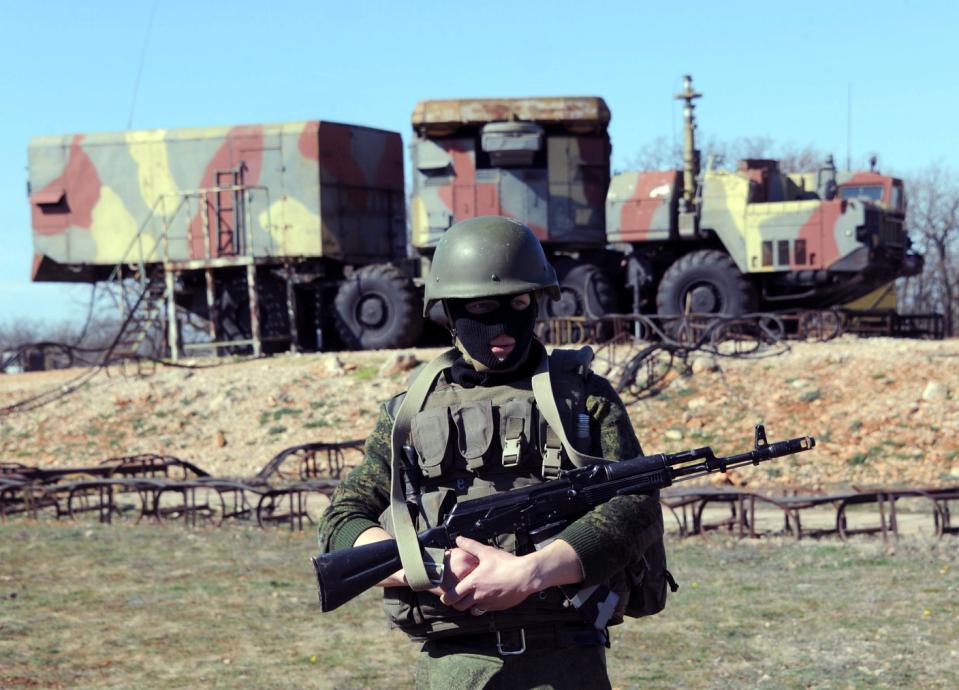
A member of the Russian forces guards in front of surface-to-air S300 missiles in a Ukrainian anti-aircraft missile unit on the Cape of Fiolent in Sevastopol on March 5, 2014. A military source has told Interfax-Ukraine that Russian commandos have seized control of the anti-aircraft missile systems and are guarding them. AFP PHOTO/ VIKTOR DRACHEV
The S-300 systems basically provides an anti-Missile shield of Iran’s “peaceful “ nuclear program against any U.S./Israeli aircraft or medium range ballistic missile attack according to the Pentagon. Fox News reported “We have long expressed our concerns over reports of the possible sale of this missile system to the Iranians,” Pentagon spokesman Capt. Jeff Davis told Fox News. Further that “is a very capable weapons system that can bring down U.S. or Israeli jet aircraft.”
How capable are the new S-300 system? Note this Washington Free Beacon report:
According to the defense website Deagel, the S-300V4 missile system is “1.5 to 2.3 times more effective” than previous systems “in its anti-missile defense capabilities.” The system is “capable of shooting down medium-range ballistic missiles (MRBM) with a maximum range of 2,500 kilometers.”
All this stemmed from the July 24th meeting in Moscow by Iran’s controversial Quds Force director Gen. Soleimani with Russian President Putin and Defense Minister Shogui endeavoring to expedite these deliveries of S-300 air defense systems and other weapon systems, including advanced Russian jet fighters to replace aging US fighters from the era of the Late Shah. That would complement the deliveries of Chinese stealth Jet fighters under a $10 Billion oil barter agreement. While objecting to the Russian sale to Iran of advanced S-300 missile deal, State Department press spokesman Admiral John Kirby suggested that it was excluded from the JCPOA terms lifting both conventional weapons and missile technology sanctions under the 2010 UN Resolution 1929 five and year sunsets provisions.
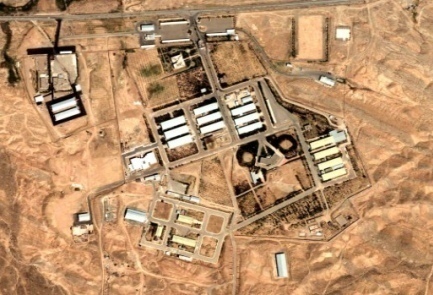
Parchin Iran Military Explosives Test Site.
Then there was the exclusive AP report of its examination of one of the secret side deals between Iran and the UN nuclear watchdog agency, the International Atomic Energy Agency (IAEA). The AP had been given access to the secret deal by a senior official of the IAEA on conditions of anonymity. The AP report of its examination of the secret side deal revealed that it gave Tehran, the authority to use its own inspectors to deliver findings on alleged prior military developments for explosive nuclear triggers at the contested military site of Parchin. Iran for years had barred IAEA inspectors access to Parchin and other known sites under the pretext that it would violate the Islamic Regime’s national security. U.S. Intelligence has recently said that digital photos show the site being ‘sanitized”. The board of the IAEA, including the US and some of the P5+1 partners, contemplate acceptance under the terms of the JCPOA lifting upwards of $100 billion plus in sanctions relief slated for December of this year based on the delivery of the PMD inspection reports. The reactions of the White House and presumably President Obama on vacation on the offshore island of Martha’s Vineyard stretch credulity. They simply repeated the explanations by the President and White House press spokesperson Josh Earnest dismissing issues of trustworthiness of Iran’s Mullahs. The meme was the highly intrusive and robust IAEA inspection regime of the JCPOA would catch Iranian cheating instantly enabling punitive snapback of sanctions.
When queried by journalists at yesterday’s State Department Daily Press Briefings, Press Spokesperson, Admiral John Kirby contended that the IAEA Director General Amano briefed both Chambers of Congress in closed door sessions on IAEA Iran inspection terms stating that the side deals were “routine” and exemplary of the “robust intrusive” inspection regime. Further, he repeated the line that the US and other P5+1 already knew what Iran did a decade ago in prior military developments in violation of the non-proliferation treaty. These PMD reports by the IAEA were to establish a baseline for the “intrusive, robust” inspections over the 10, 15 and 25 terms of the JCPOA. Now, given the AP report on this secret side deal between the IAEA and Iran it is questionable whether the entire agreement can assure any compliance by Iran.
Watch this C-Span video clip of State Department spokesman Admiral John Kirby at yesterday’s Daily Press Briefing:
The reaction from Republican leaders in both Chambers was incredulity. That was underlined by statements by two experts on nuclear inspections, former IAEA Deputy Director Ollie Heinonen of Harvard’s Belfer Center and David Albright of Washington, DC –based, Institute for Science and International Security (ISIS). The AP report on the IAEA side deal with Iran noted these comments:
House Speaker John Boehner said, “President Obama boasts his deal includes ‘unprecedented verification.’ He claims it’s not built on trust. But the administration’s briefings on these side deals have been totally insufficient – and it still isn’t clear whether anyone at the White House has seen the final documents.” House Foreign Affairs Committee Chairman Ed Royce: “International inspections should be done by international inspectors. Period.” John Cornyn of Texas, the second-ranking Republican senator, said, “Trusting Iran to inspect its own nuclear site and report to the U.N. in an open and transparent way is remarkably naive and incredibly reckless. This revelation only reinforces the deep-seated concerns the American people have about the agreement.”
The Israel Project Daily Report noted Heinonen stating “that he knew of no other instance in which a country under scrutiny was allowed to conduct its own investigation.” Albright of ISIS, “called this arrangement “unprecedented and risky.” Albright warned that “ambiguity over Iran’s nuclear weaponization accomplishments and residual capabilities risks rendering an agreement unverifiable by the IAEA.”
Notwithstanding these developments Democrat Senators continued signing up yesterday signed up in support of the President’s nuclear pact with Iran. Massachusetts Senator Ed Markey, who succeeded Senator Kerry, said in a statement to the Boston Globe, yesterday:
I have concluded that diplomacy remains our best tool to secure a nuclear-weapon-free Iran, That’s why I intend to support the Iran nuclear agreement when it comes before Congress in September.”
This agreement is far from perfect and carries risks. But I believe our negotiators achieved as much as they reasonably could, and that if strictly implemented, this plan can be effective.
In contrast to Markey and other loyal Democrat Senators, we suggest that they heed the warning of colleague New Jersey Democrat Robert Menendez at his Seton Hall University address:” Hope is not a national security initiative … if Iran is to acquire a nuclear bomb, it will not have my name on it”.
The perfidy of the Obama Administration is exposed each day, yet the cupidity his claque of supporters of the Iran nuclear pact in the Congress like Senator Markey and other Democrats in both Chambers of Congress is appalling. Witness the mind numbing comment by House minority leader, Nancy Pelosi (D-CA: “I truly believe in this agreement”.
EDITORS NOTE: This column originally appeared in the New English Review. The featured image is of Iranian Foreign Minister Zarif and Russian Foreign Minister Lavrov in Moscow on August 18, 2015.

